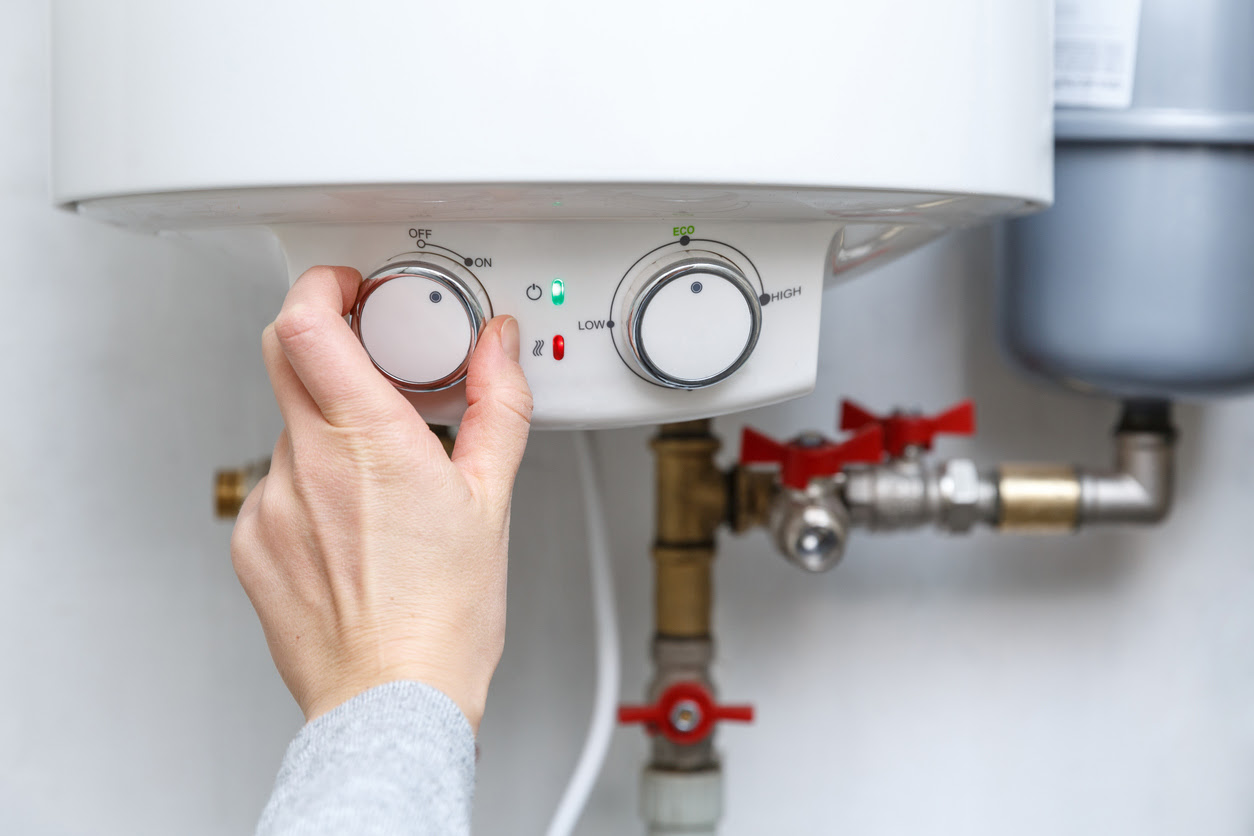A water heater is an essential piece of equipment for any building. Whether taking a relaxing shower, washing our dishes, or doing heavily soiled laundry, having properly hot water makes lives more manageable. But, the key phrase is ‘properly hot’. Too far in any direction and you’ll end up with water that is either lukewarm or scalding. So, how do you determine what temperature your water heater should be set at? Read on to find out more…
Setting The Ideal Water Temperature
If the water runs at boiling temperatures or can’t get warm enough no matter how far the tap gets turned, most people tend to assume that their water heater is broken. However, that isn’t always the case. Water heaters have settings that determine the temperature of your water. That temperature setting can have a significant impact on your life and not just your plumbing.
So what temperature should you set for your water heater to ensure your comfort? According to Energy.gov, the recommended setting for your water heater is 120 degrees Fahrenheit. At this temperature, the water is hot enough to be comfortable for most without scalding, and an entire home can be provided with enough hot water. Some manufacturers preset water heaters to 140 degrees Fahrenheit, so be sure to check the setting if you have a new water heater installed. Keep in mind, however, that this is a general recommendation. If you need your water to be hotter for your personal needs, the best thing to do is start at 120 degrees Fahrenheit and adjust up from there.
Factors That Affect Temperature Settings
While 120 degrees Fahrenheit is a good general setting for your water heater, there are several things to keep in mind when determining the final temperature for your water heater.
- If you own a dishwasher that does not pre-heat the water to 140 degrees Fahrenheit, you may wish to set your water heater to that temperature to ensure that your dishes are clean.
- Homeowners who are elderly or have small children should keep their water heater set at 120 degrees Fahrenheit to reduce the likelihood of scalding burns. Be particularly cautious in the case of babies, who can experience third-degree burns from water that is 140 degrees Fahrenheit in only five seconds.
- Those who live alone may want to keep their water temperature low due to less strain on the heater. However, homes with multiple people should consider a higher temperature to ensure that everyone has hot water.
- People with compromised immune systems or respiratory disorders should set their water heater to 140 degrees Fahrenheit to kill any threatening microorganisms and prevent bacteria from growing.
How Water Temperature Affects Your Energy Bill
You may realize that heating your water requires energy, but what you may not know is that your water heater accounts for roughly 18% of your monthly home energy usage. In fact, for every 10 degrees that you turn down your hot water, you can save 3-5 percent on your energy bill each month. This of course depends on how heavily your hot water is used. If you’re considering installing a dishwasher, be sure to purchase a pre-heating unit. These dishwashers are designed to take in water then heat it to an appropriate temperature without the need for turning up your water heater.
Finding Your Current Water Heater Temperature Setting
Most water heaters come with a dial that tells you the temperature of the water. However, if you don’t have a water heater with this feature you can take a reading directly from your faucet with a cooking thermometer. Let your water heater sit for at least 60 minutes without use, then turn on the hot water on the tap closest to the water heater. The water should run for 60 seconds to reach the maximum temperature. Fill a small cup with the hot water, and then insert your thermometer into the cup to measure your water temperature.
Quality Contracting Services For All Your Needs
Since 1965, the experts at Coastal Mechanical Contractors have been helping the customers of Houma and the surrounding areas. Our contractors are ready to serve all your plumbing, electrical, and HVAC needs, so contact us today to make an appointment.

